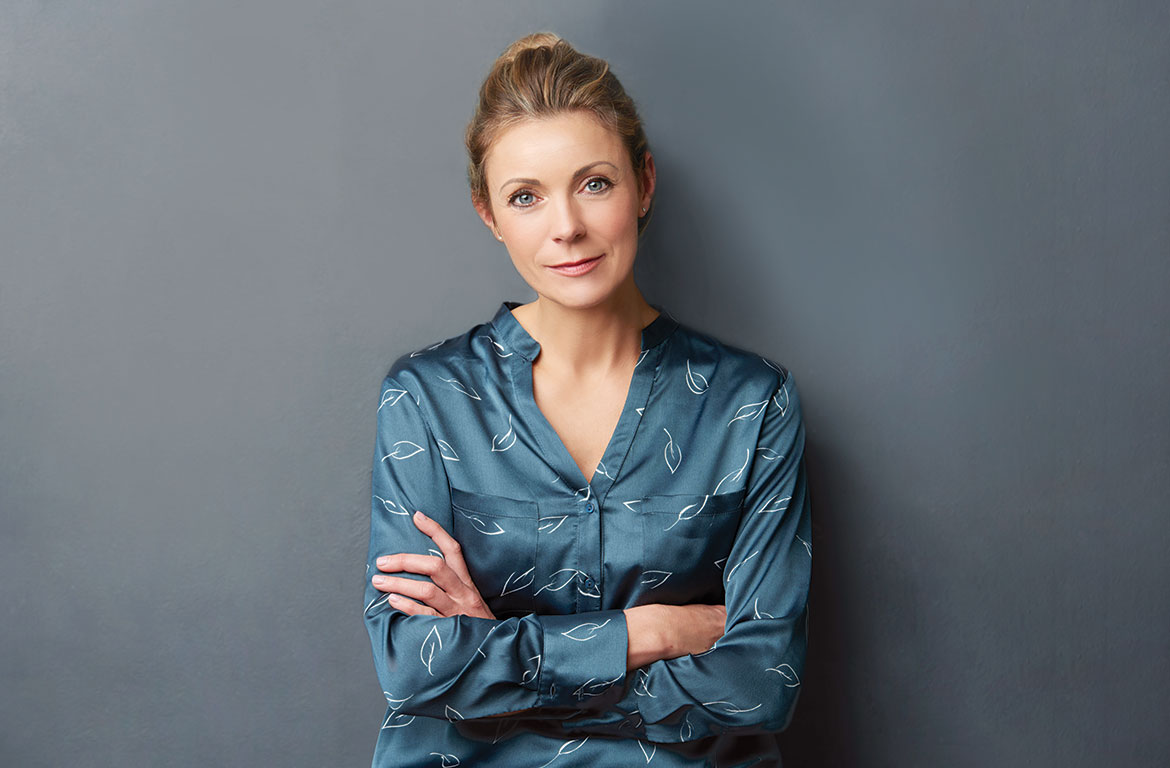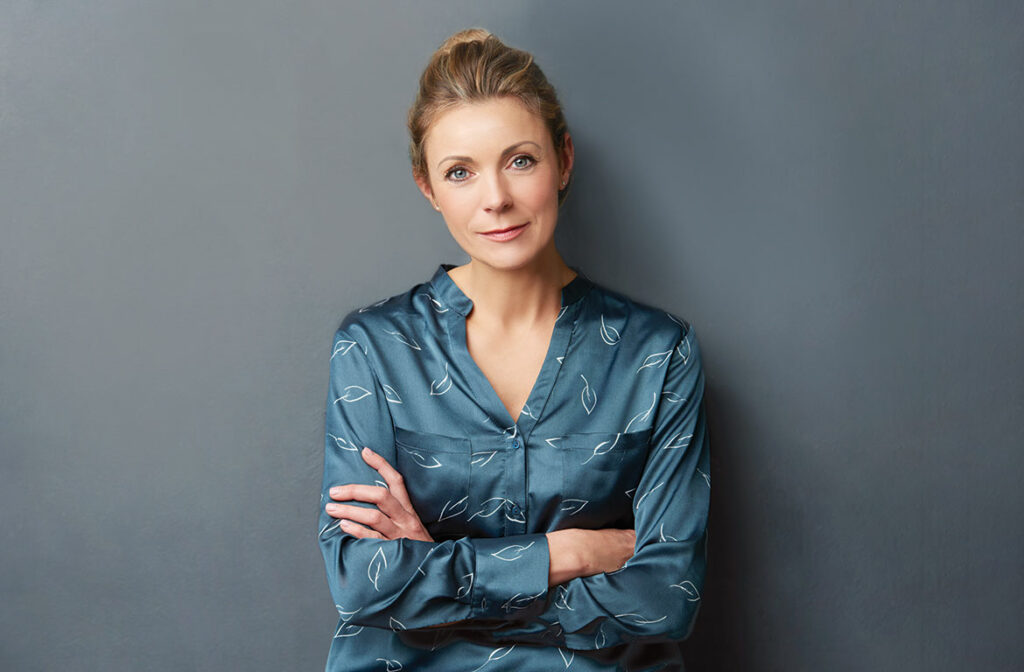A Closer Look During National Menopause Awareness Month
If you’ve noticed your skin changing as you get older, you might think it’s just the aging process. After all, wrinkles, sagging, dryness, dullness; they’re all just part of getting older, right? Well partly. Of course, skin does change as we age. But if you’re a woman in your 40s or 50s, you might find your skin – and your appearance – is changing much more suddenly than you expected. So, what’s really going on? In honor of National Menopause Awareness Month, let’s take a closer look.
Two Types of Skin Aging
There are two main types of skin aging. Intrinsic and extrinsic.
Extrinsic skin aging is a result of external factors that contribute to older-looking skin such as sun exposure and pollution damage. There are steps you can take to minimize these effects such as always wearing sunscreen and ensuring your skincare regime includes products that offer anti-oxidant protection.
Meanwhile, intrinsic skin aging is the natural process we all go through as skin loses collagen when we get older. From the age of 18, we lose around 1% of collagen each year. But during menopause, this collagen loss speeds up dramatically.
Rapid Aging
During menopause (and perimenopause), internal factors cause a healthy woman’s skin to age more rapidly than at any other stage of her life. At this time, skin aging accelerates due to reduced levels of estrogen which in turn, leads to a drastic loss of collagen. This condition, known as Estrogen Deficient Skin (EDS), leads to a number of skin changes including dryness, more prominent wrinkles and a loss of plumpness – all of which contribute to the older looking skin we want to avoid.
Collagen Loss During Menopause
During the first five years after the onset of menopause, Estrogen Deficient Skin leads to a drop in up to 30% of dermal collagen content. After menopause, collagen continues to drop steadily at a rate of around 2.1% per year1.
Estrogen plays a critical role in maintaining healthy, vibrant and youthful-looking skin. It works by activating key skin cells called fibroblasts and keratinocytes. In turn, these skin cells produce collagen, elastin and hyaluronic acid, which help to maintain healthy skin.
Leading up to, during and after menopause, declining estrogen levels become the primary cause of intrinsic skin aging that occurs in women. In fact, low estrogen levels cause greater collagen loss than chronological aging.
What can you do to help?
When you look in the mirror and notice sudden signs of aging, it can be an unwelcome surprise.
Nobody wants to feel they’ve aged a decade in just a year or two. But luckily there are things you can do to improve the appearance of your skin and minimize the skin aging effects leading up to and during menopause.
Switch up your skincare
Most women find that after the start of menopause, the trusty products they’ve used for years are no longer suitable for their changing skin.
To target the accelerated collagen loss caused by declining estrogen levels during menopause, you need a specialized product created especially for menopausal skin.
Emepelle® is a breakthrough line of skincare products, developed especially for skin affected by perimenopause and menopause. Featuring revolutionary MEP Technology®, Emepelle is clinically proven to effectively and safely help restore the natural function of skin, addressing the root cause of aging in skin affected by menopause.
Emepelle addresses many signs of aging including dryness, wrinkling, dullness, and laxity. This makes Emepelle an ideal product to introduce into your daily routine if you’re concerned that your skin is aging at a rapid rate and if you are nearing or are in menopause.
Continue using SPF every day
Wearing daily sun protection is essential to maintain skin health and prevent premature skin aging. So, always wear a facial sunscreen to protect your skin.
Stay hydrated
Dehydration can contribute to older, tired-looking skin so remember to sip water throughout the day to keep your skin plump and hydrated.
Eat well
The food we eat plays a big role in the health of our skin. Make sure you get your five portions of fruit and vegetables each day to keep skin looking vibrant.
Eating well is a good way to combat many uncomfortable menopause symptoms, too. For example, a healthy diet can keep your energy levels and blood sugar levels balanced to help reduce feelings of exhaustion or anxiety.
1. Hall G, Phillips TJ. Estrogen and skin: the effects of estrogen, menopause, and hormone replacement therapy on the skin. J Am Acad Dermatol. 2005;53:555-68.

